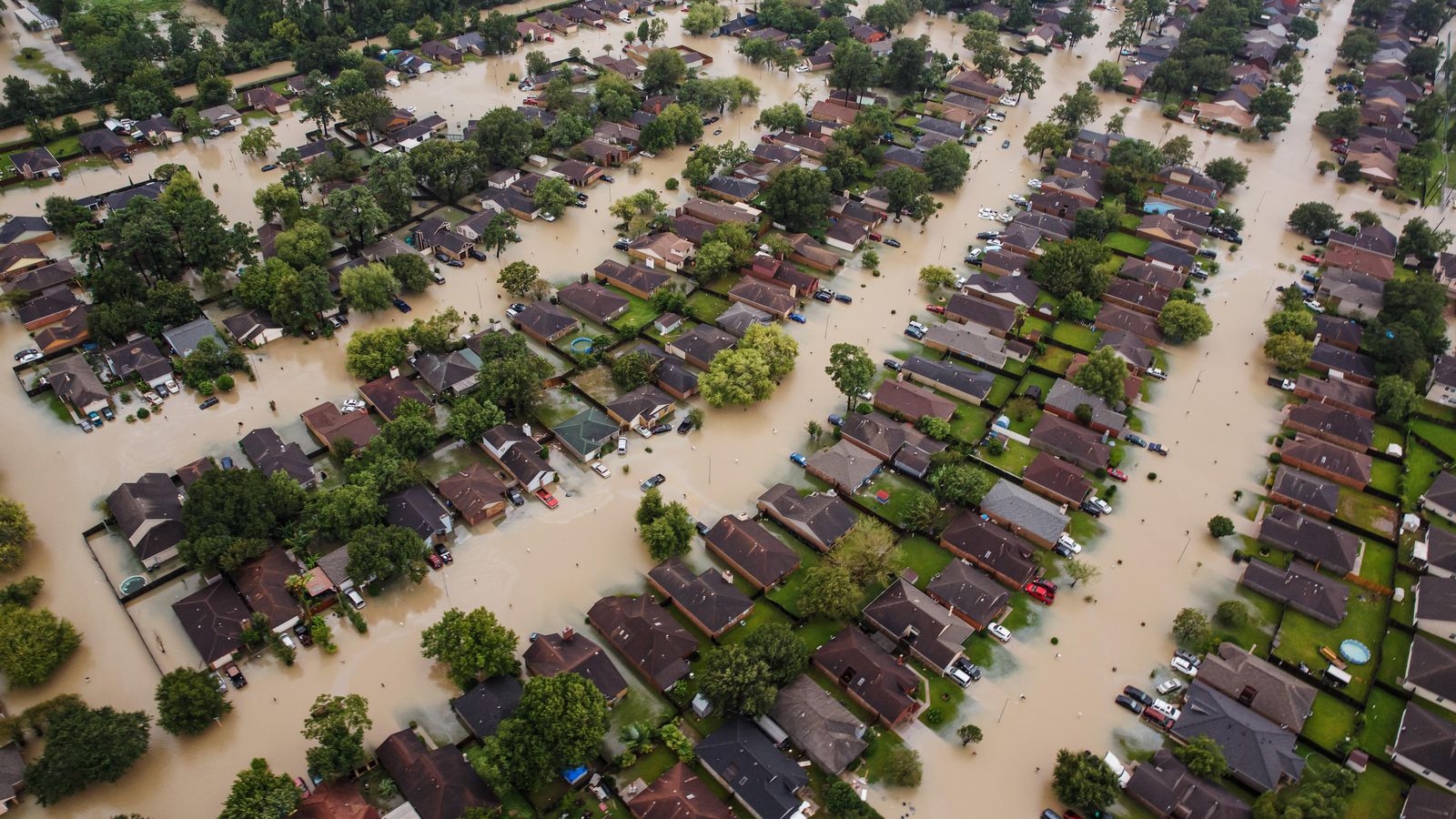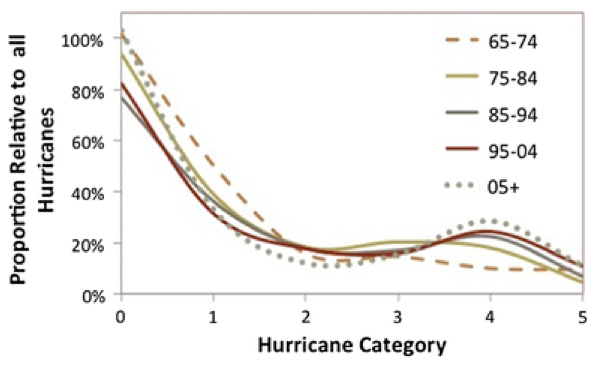By Greg Holland, National Center for Atmospheric Research

Recent Hurricanes
Hurricane records have toppled over the past couple of weeks: Harvey dumped record rain on the Houston area, Irma became one of the strongest hurricanes on record, three hurricanes were active in the Atlantic for the first time in a decade, and two hurricanes of over 150 mph occurred together for the first time in the period of observations.
Was climate change the factor in response to a world that is approaching 1℃ warming? Was it a case of an unfortunate convergence of rare events? Or, was it that the observing record is too incomplete for us to have sampled such events before? Let’s look at what is known for climate change.
How climate change impacts hurricanes
First, the occurrence of each of these hurricanes cannot be attributed to climate change. Rather, our best understanding at present is that the global number of such storms will remain the same or perhaps even decline with climate change.
Hurricanes cause damage from a combination of intensity, size, forward speed, and rainfall. Size and forward speed add to damage through the area affected and the length of time the wind blows. However, not a lot is known about how these two are affected by climate change.
For every degree of warming, the atmosphere can hold 6-8% more water vapor. For Harvey the local oceanic temperatures were also above average. Simplistically, then, we could conclude that a few percent of Harvey’s rainfall can be attributed to climate change.
But extreme events do not change in simplistic manners. Greater moisture can mean stronger updrafts and even more enhanced rainfall. Much of the rainfall in a hurricane has been derived from moisture drawn from a large area surrounding the core that can amplify the net rain. Harvey slowing down also allowed extra time for rain to fall over Houston. While the precise ways in which these diverse processes work in higher moisture conditions can be difficult to define exactly, there is little doubt that they enhance rainfall well beyond the simplistic 6-8%.
The record Houston-area rains were almost certainly enhanced by climate change, with the degree of enhancement possibly being as high as 30% (or more if the slow movement can be attributed).

Future outlook
It is well known that climate change pushes out the maximum intensity that hurricanes can reach at a rate of 5-10% increase in wind speeds for every degree of warming (e.g. Lighthill et al 1993). Such small increases are very difficult to isolate at present due to the large natural variability in hurricane intensities.
However, there is a very clear signature for the frequency of intense hurricanes. Globally, the proportion of Cat 4 and 5 hurricanes has increased from ~20% of all hurricanes to around 40% due to climate change over the past 60 years (Webster et al 2005, Holland and Bruyere 2013). This has arisen through an increased number of weaker storms moving up into much higher intensities. The increase has been lower than the global average in the Atlantic, but it is still quite noticeable.
As climate change continues, by any reasonable expectation we will see more storms like Harvey and Irma and the chances for these to occur simultaneously also will increase.

References
Holland, G.J. and C. Bruyere, 2014: Recent Intense Hurricane Response to Global Climate Change. Clim. Dyn., 42, 617-627. DOI: 10.1007/s00382-013-1713-0.
Lighthill, J., Zheng, Z., G.J. Holland, and K. Emanuel, ed., 1993: Tropical Cyclone Disasters. Peking University Press, Beijing, ISBN 7-301-02086-4/P.31, 588 pp.
Webster, P.J., G.J. Holland, J.A. Curry and H-R. Chang, 2005: Changes in tropical cyclone number, duration and intensity in a warming environment. Science, 309, 1844-1846.
About the author
Greg Holland is the Director of the Capacity Center for Climate and Weather Extremes at the National Center for Atmospheric Research in Boulder Colorado.
- Beware quiet segments of the Philippine Fault - May 16, 2025
-
ډیری عوامل افغاني ټولنې د زلزلې پر وړاندې زیانمنوي
- August 11, 2022 - What’s happening this week in Humboldt County, California: The squeeze - February 6, 2019
